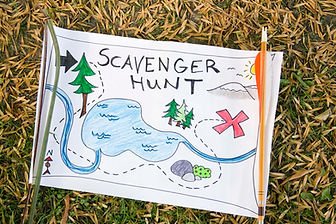

Current Research Projects
Research Project
Questing for Relevance: Exploring Student Outcomes from Creative Assessment "Quests" in a General Education Biology Course through the lens of the "Hero's Journey"

Creativity, critical thinking, research, questioning, problem-solving and collaboration skills are critical 21st-century skills (Morrison, 2006; Wai, Lubinski & Benbow, 2010). Contrary to many of these goals, students often perceive STEM as the opposite of creative; seeing STEM as boring, lacking relevance, and full of memorizing facts. This in turn influences students to leave STEM degrees or never select them to begin with (Bok, 2006; Seymour & Hewitt, 1997). It is on these premises that we assert that assessments in STEM courses need to reflect actual real-world tasks and engage students’ interests and skills (e.g. Montgomery, 2002).
We began this research in a general education biology course in Fall 2020 and have been gathering data ever since. In this unique course, students are assigned to do three quest-style assignments in which they "choose their own adventure" from over 20 creative assignments.
We are using Campbell's "Hero's Journey" monomyth and a mixed methods approach to explore what the experience of doing the quest assignments is like for the students. This includes analyzing reflection prompts (N>1000) and interviews (n=11) with undergraduate students. The goal is to uncover how and in what ways the quest assignment elicited their creativity and emotions they experienced as a result of completing the quests.
Undergraduate Student Researchers: Neha Mann and Bernice Mendoza-Alcaraz; Funding: NSF-HSI Supplement $68,489
Research Project
Meta-Analysis of Culturally Responsive, Relevant, and Sustaining Pedagogies in Postsecondary STEM

The objective of the project is to do a qualitative meta-analysis of the existing literature exploring student outcomes of culturally relevant, responsive, and sustaining pedagogies. We are currently analyzing around 90 articles to explore and run statistics on their findings. We hope that the analysis we publish will inform the field to do more targeted explorations of he impact of culturally informed STEM teaching in postsecondary settings.
Undergraduate Research Team: Hannah Gill, Vivian Nguyen, Alexa Valdez, Danielle Vu, & Allison Vang
Research Project
Empowering Non-Science Majors to Identify and Debunk Misinformation about Vaccines

The objective of the project is to use teach students in a general education biology course to use lateral reading as well as questioning the credentials of the author, their intent, and sources behind a claim when evaluating scientific information about vaccines online.
We are exploring qualitative and quantitative outcomes for students to see how and in what ways their ability to debunk information changes after civic online reasoning instruction.
Undergraduate Researchers: Vivian Nguyen
Research Project
Secret Sauce: Teaching Fermentation through Southeastern Asian Culture and Culturally Responsive Teaching in Majors' Biology

In this mixed-methods project, we are exploring student identity and scientific knowledge outcomes in majors' biology module focused on fish sauce and fermentation processes as part of Southeastern Asian Culture. This includes ways that the content draws on the knowledge of our students' families, a rich tradition of family and cooking, and the experiences of our region as a hub for agriculture.
We are excited to explore this project as part of greater efforts to break the "model minority" myth for Asian students in STEM and to better connect with Fresno State's Southeastern Asian community.
Undergraduate Student Researcher: Hannah Gill
Graduate Student Researcher: Tony Chontong [graduated 2024]
Research Project
We Not Plants to “Weed Out”: A Phenomenological Approach to Understanding the First-Year Experiences of STEM Majors

The objective of the project is to use a phenomenological approach (Moustakas, 1994) to understand the lived experiences of first year students who are science and mathematics majors. There is extensive research about reasons students leave STEM and the student and school-based factors tied to leaving STEM (Seymour & Hewitt, 1997; 2019; Tinto, 2013). However, we have very little idea about the college landscape that students are experiencing in the post-COVID era.
We will be doing semi-structured focus group interviews with individuals taking the second semester of a first-year experience courses for STEM majors. We are using Social-Cognitive Career Theory (Brown et al., 2019) and Intersectionality (Christensen et al., 2012) to frame our interview questions.
We hope to establish insight into the influence of the post-COVID context on academic and career selections, thus offering guidance to both universities and individual professors on how to improve support structures for first-year STEM students.
Undergraduate Researchers: Chahat Asi, Rania al Teshi, and Nemah Abdullah
